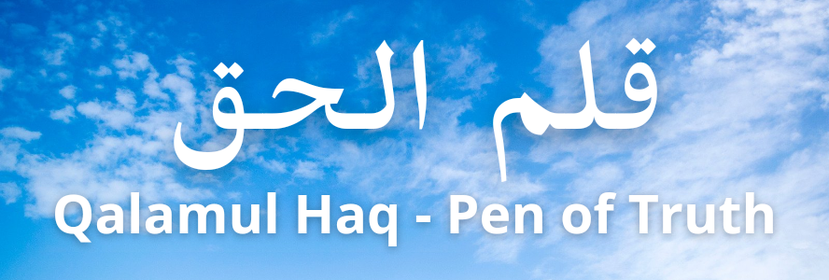- Details
- Hits: 907
Moulood-The Stance of the Sharia-Part 2
WHAT IS IBAADAT
IBAADAT (WORSHIP) IN ISLAM is restricted to only ritual acts, practices and customs of worship which were taught by Rasulullah (sallallaahu alayhi wasallam) and practised by his noble Companions and the illustrious personalities of Islam in the initial three eras of Islam known as Khairul Quroon (Noblest Ages). (This applies to formal and informal types of Ibaadat)
Irrespective of the appeal and beauty any act/practice of apparent worship may possess, it will not be Ibaadat in Islam if it has no basis in the Sunnah of Rasulullah (sallallaahu alayhi wasallam) – and the concept of the Sunnah is what was known, understood, practised and propagated by the Sahaabah, Taabieen and Tab-e-Taabieen in the period known as Khairul Quroon. Thus, if anyone insists on performing Salaat at sunrise, midday (Zawwaal) and sunset, it will not be said that such performance is Salaat. It will be a haraam and a bid’ah (innovation) notwithstanding its external form of Salaat. If someone fasts on the Days of Eid, such fasting will not be Ibaadat, but will be haraam and bid’ah, Since these acts which are in conflict with the teachings of Rasulullah (sallallaahu alayhi wasallam), they will not be classified as Ibaadat notwithstanding their external forms of worship.
If someone performs four raka’ts ‘Fardh’ for Fajr instead of the commanded two raka’ts, such performance will not be Ibaadat irrespective of the beauty of the external form of the act. It will be a haraam and bid’ah.
The customary practices of Moulood/Meelaad have to be examined on this criterion of the Shariah. Did Rasulullah (sallallaahu alayhi wasallam) teach the observance of Moulood? Did the Sahaabah, the Taabieen and Tab-e-Taabieen observe Moulood? If they had observed the custom, undoubtedly, it will be classified as Ibaadat. If they did not, it will not then be Ibaadat.
OBEDIENCE TO ALLAH AND HIS RASOOL (Sallallaahu alayhi wasallam) IS IBAADAT
(O Believers! Obey Allah, and obey the Messenger…)
THE SOURCES OF ISLAMIC Law (the Shariah) are four, viz.,
I. The Qur’aan
II. The Sunnah
III. Ijmaa’ or the Consensus of opinion of the Jurists
IV. Qiyaas or the Analogical reasoning process of the Jurists of Islam.
The above mentioned four PRINCIPLES constitute the basis of Islamic law. If any act or practice is substantiated or proved on the firm foundations of the above mentioned four Principles of the Islamic Shariah then such an act or practice constitute ISLAMIC LAW and as such is the DIVINE LAW of ALLAH, and no member of the Ummah has the right to reject such an act or practice. On the other hand if any act, practice or custom conflicts with the four above mentioned Principles or if any act or practice cannot be substantiated on the basis of the four Islamic Principles of the Shariah then it will stand condemned in the Eyes of the Shariah and as such it will have to be rejected as a bad innovation. . . an evil introduction into the Deen of Allah.
The custom of Meelaad cannot be substantiated on the basis of the four Principles of Islamic Law. It is an absolute necessity to prove conclusively that this custom of Meelaad in its present form of prevalence is sanctioned by any of the Principles of Islamic Law before it (this custom) could be accorded an Islamic status.
Allah Ta’ala says in the Holy Qur’aan:
“Then, We have established you on a Shariah (Law or Path) with regard to affairs. Therefore follow it (this Shariah) and do not follow the desires of those who do not know.”
Allah Ta’ala commands in this verse of the Holy Qur’aan total submission to His Law. This verse of the Holy Qur’aan emphatically prohibits the following of any practice or custom which is not sanctioned by the Shariah. Any custom which has no basis in the Shariah is described by Allah Ta’ala in this verse as “the desires of those who do not know.”
Elsewhere in the Holy Qur’aan Allah Ta’ala states:
“What! Have they partners who have ordained for them such things of which Allah has not granted permission?”
This verse of the Holy Qur’aan clearly deprecates any introduction of practices and customs within the Deen. Only such customs and practices have the favour of Allah for which there exist Divine Sanction.
In another verse of the Holy Qur’aan Allah Ta’ala says: “Whatever the Rasool brings to you, accept it. And, whatever he (the Rasool) forbids you of, abstain from it.”
It cannot be proved that this custom of Meelaad was given to us by our Nabi (sallallaahu alayhi wasallam) nor was it ever practised by the beloved Sahaabah of our Nabi (sallallaahu alayhi wasallam). Furthermore, this custom did not exist among Muslims for a full six centuries after the demise of our Nabi (sallallaahu alayhi wasallam).
To be continued Insha Allah











